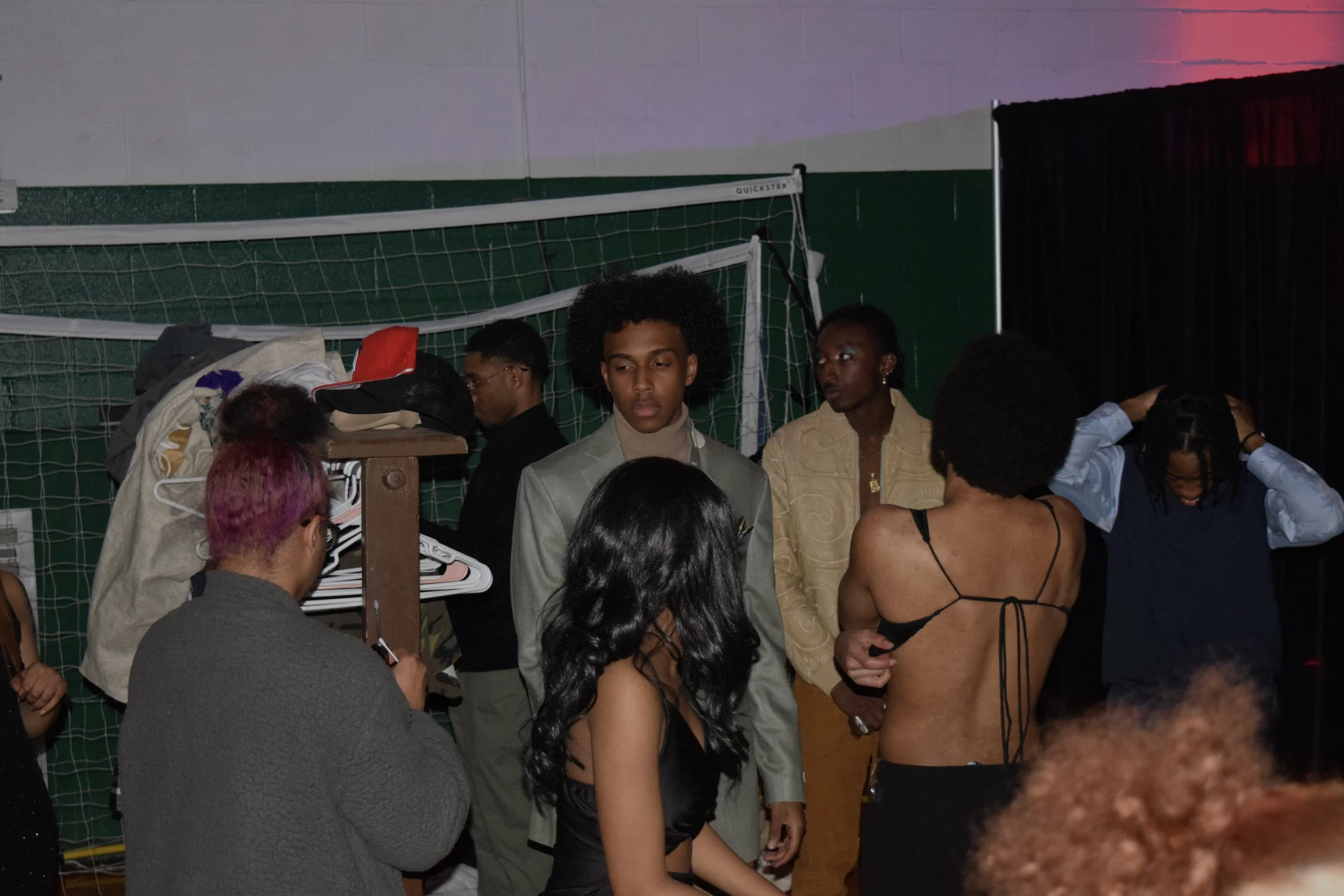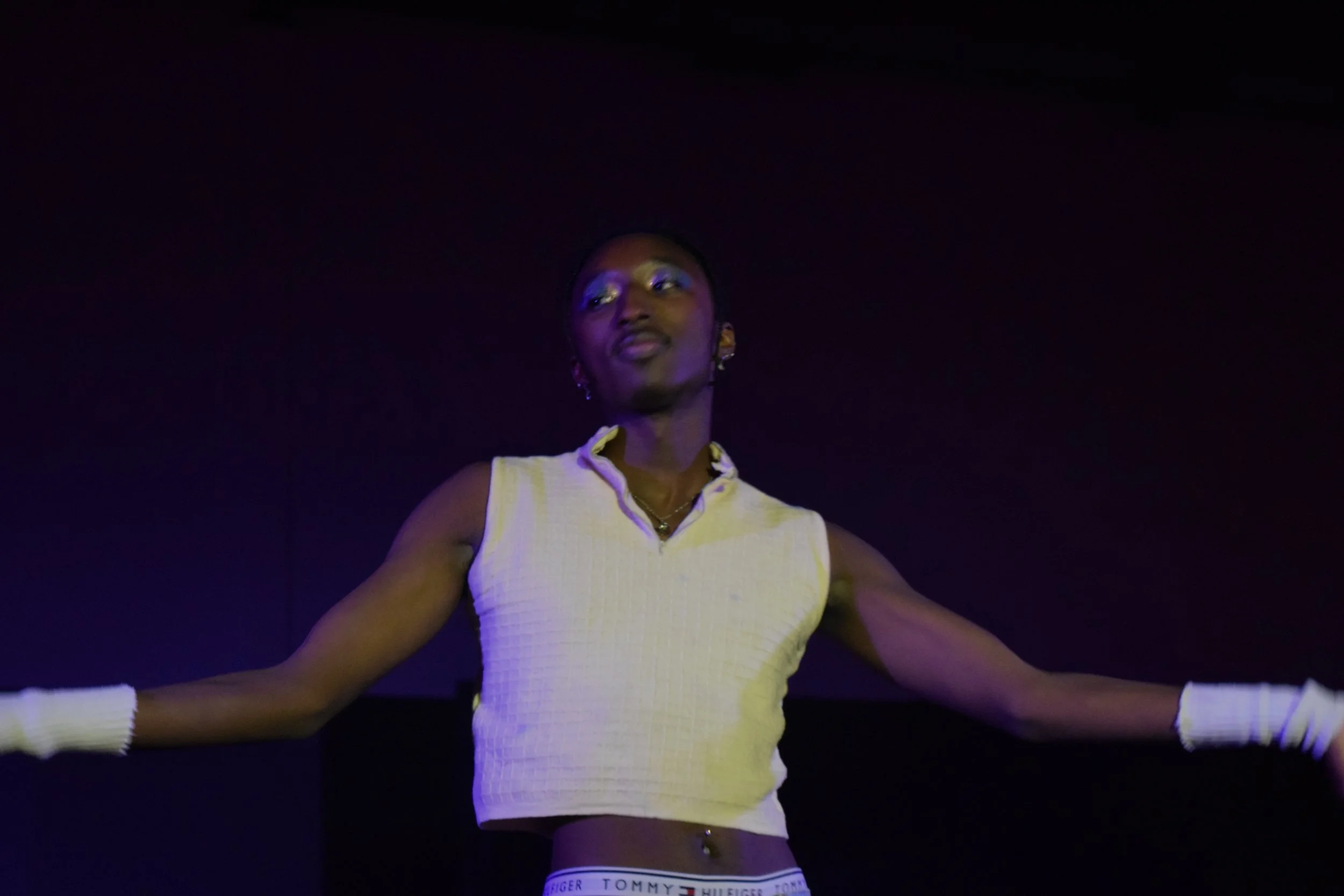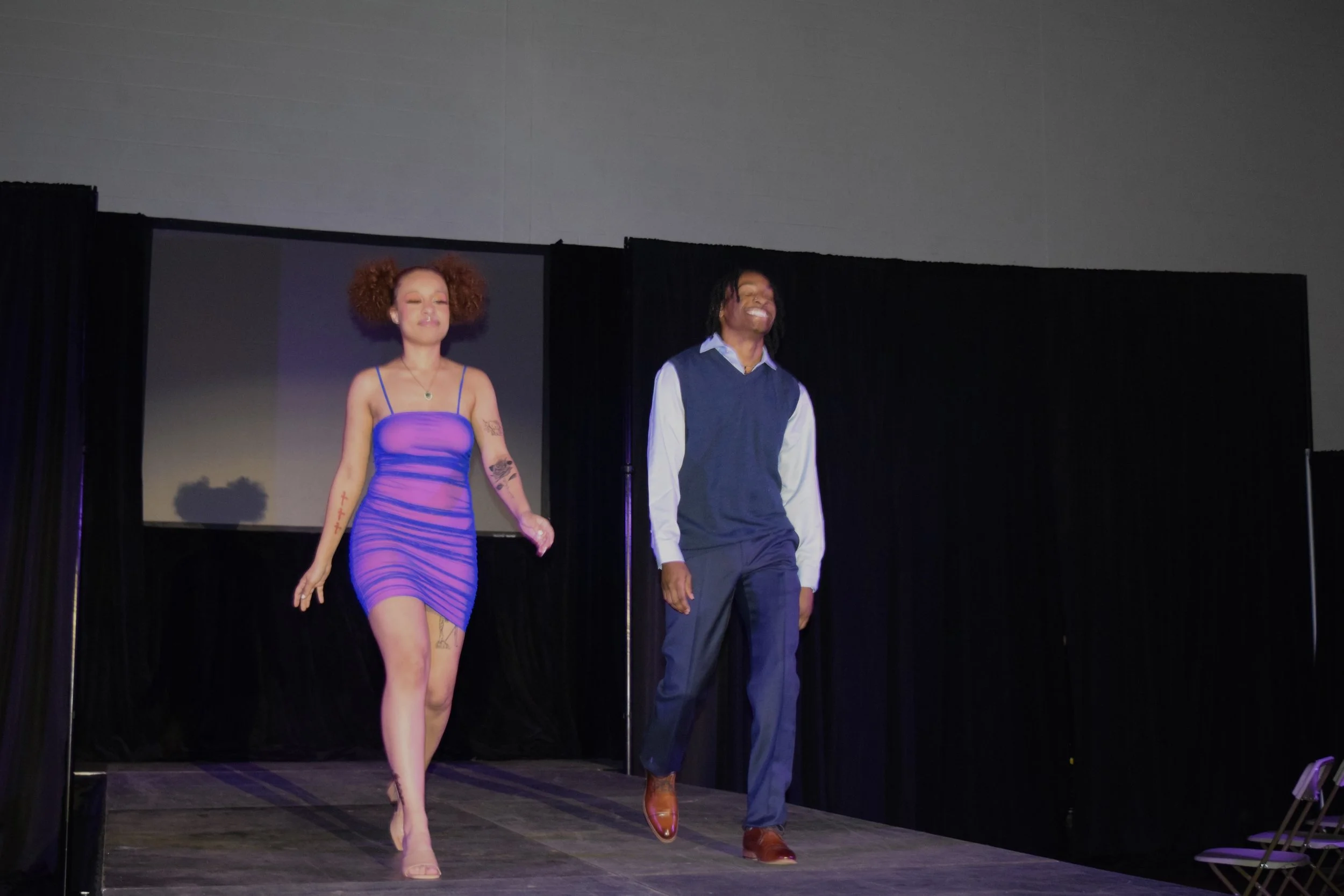Cover image courtesy of Divine Perez ‘24
Models Farah Abdullah ‘25, Dee Bronner ‘22, Michelle Sawunyama ‘24, Kyle Gaillard ‘23, Ivory Gipson ‘25, Jacob Smith ‘24, Madison Mason ‘24, and Yej Rodriguez ‘23 getting dressed backstage. Photo courtesy: Divine Perez ‘24
On April 16th, 2022, the Skidmore Club Ujima hosted its annual fashion show titled Infiltrate, which paid homage to the ballroom scene—a social and cultural movement spearheaded by queer brown and Black individuals. In alignment with Ujima’s mission to “bring awareness of African, African-American, and Caribbean cultures to Skidmore campus,” the show featured student models walking in three different “scenes” to celebrate the breadth and diversity of Black culture. After attending the event, I had the exciting opportunity to interview director Erica Smith ‘22 on her inspiration and creative process behind the show.
At the beginning of the interview, Smith explained that Ujima’s spring fashion show differs in theme each year. When Smith was a freshman at Skidmore, the show illustrated a “boat trip through the diaspora,” showcasing different regions where “Blackness is represented.” Smith mentioned that this was their first time directing for Ujima, which inspired them to choose an unconventional theme that was “different, but also something that probably hasn’t been represented” at Skidmore.
Ballroom culture includes “balls” which are similar to a fashion show and often include drag performances, dancing, and elaborate costumes. Smith articulated how she has always been “really interested and invested in ballroom culture” and how it represents a safe place of acceptance and support for LGBTQ+ people of color. For Smith, “ballroom has always been the larger, grand scheme of how life should work,” one that allows Black and brown people to simply exist without needing to “conform… or act a certain way to be accepted by different institutions.
Jacob Smith ‘24 posing in Ballroom Scene. Photo courtesy of Divine Perez ‘24
With only eight student models, the show managed to still be very dynamic as it was divided into three “scenes”: “Ballroom,” “Self-Expression,” and “Glam.” The models wore different outfits in each of the scenes, often incorporating dance moves and a variety of poses. For the first “Ballroom” scene, Smith ensured that only models who identified as queer walked to remain authentic to the predominant representation of the LGBTQ+ community in the ball scene. Several of the models performed sharp choreographed movements that mirrored “voguing,” a highly stylized dance form that originated out of the 1960s Harlem ballroom scene. I particularly enjoyed the outfits in this scene, which embraced gender fluidity by breaking traditional masculine and feminine clothing boundaries.
Ivory Gipson ‘25 posing in Self-Expression scene. Photo courtesy of Divine Perez ‘24
In the “Self-Expression” scene, Smith had the models bring in their own clothes and style themselves in an outfit that they felt most comfortable and authentic wearing. She expressed how important environmental sustainability was for the fashion show; they frequently utilized Skidmore’s Exchange Closet— a community space located in Case Center where students can take and give clothing for free—while putting together the outfits. Smith encouraged the models to share their personal pieces, highlighting the tight-knit community that was central to the ballroom scene, where “when anybody needed something, they could rely on each other.”
Pictured L to R: Madison Mason ‘24 and Ivory Gipson ‘25. Photo courtesy of Divine Perez ‘24
The final “Glam” scene was visually stunning: the eight models walked in glittering dresses, jumpsuits, and formal suit wear. This scene exemplified the extravagance and high fashion glamour that was central to performing in the ballroom scene. Smith gave the models creative freedom to come up with their own dance moves and poses–relying on each other for support and energy when walking as a pair. Further, music played an integral role in the message of the fashion show. When asked about the specific songs in the show, Smith described their choice of “N****s in Paris” by Jay Z and Kayne West and “Woman” by Doja Cat as songs that represented queer and Black existence traversing societal limitations.
The Ujima fashion show of spring 2022 celebrated a historically underrepresented aspect of Black culture, illustrating the power of clothing to create a safe space for Black existence that is often marginalized by white systematic institutions of power.
Erica Smith ‘22 (she/her/hers, they/them/theirs): Erica Smith is a senior at Skidmore, majoring in Sociology with a double minor in International Relations and Black Studies.



